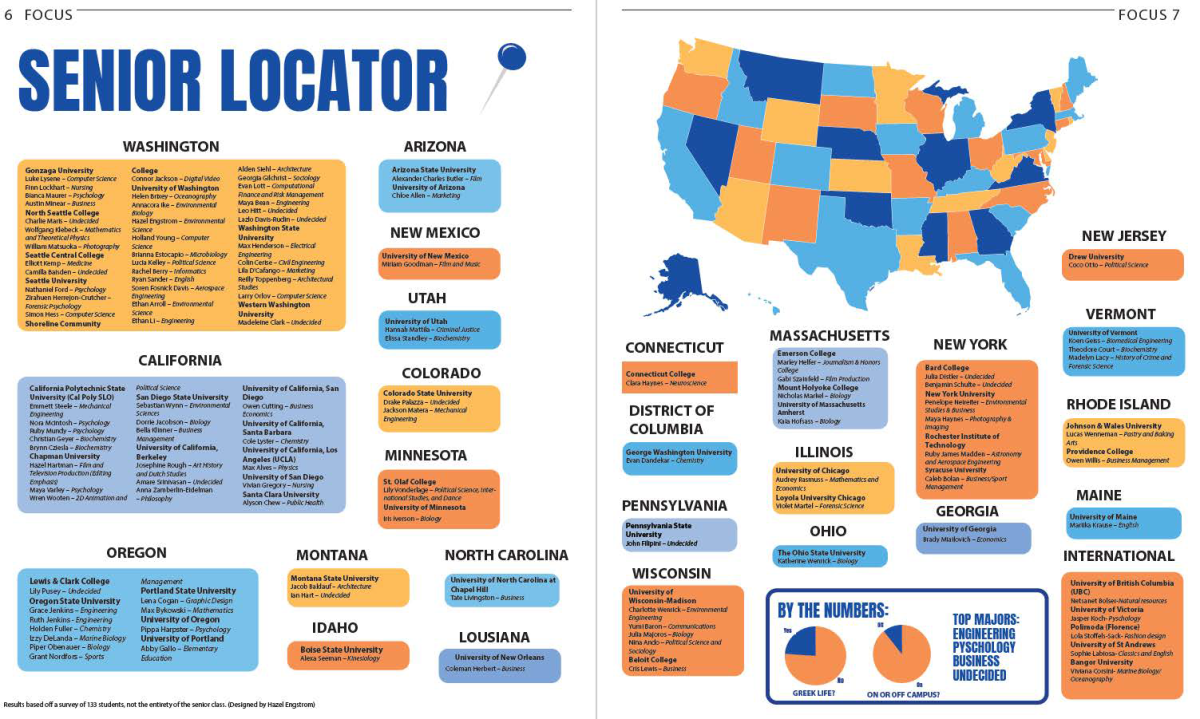After several months of development, a new Hall Pass Policy went into effect on March 18, 2024. The policy consists of tightening restrictions on the number of people that can be out of class at a time, as well as when and for how long people can be out of class. These changes are an effort to combat an observation that large numbers of students have been out in the halls instead of in class.
“What teachers were observing was a large amount of students in the hallway pretty much throughout the day, ” said Alex Guettler, Language Arts, Special Education teacher and lead coordinator for this committee. “When we say large amount, I think…on some days I would have five students out of the room.”
The new set of policies does not actually constitute a solid change, but rather a solidifying and codifying of lots of expectations that were already in place.
“Individual classes had their own system for hall passes,” Guettler said. “We didn’t have a uniform or schoolwide approach to create an expectation.”
This codifying of expectations, similar to a tradition becoming law, could help certain students more clearly understand rules.
“Part of why I wanted to do it was from a special education standpoint,” Guettler said. “There’s students…who are still growing in certain skills, like in self management, task initiation, self advocacy, all these things, having a clear system benefits especially special education students.”
While some students might benefit from this clarification of the rules, others find it restrictive.
“Personally, it feels a little bit degrading,” senior and ASB President, Addy Wynkoop, said. “Being an adult now, legally…I feel like it’s a little bit of a smack in the face to have to have such harsh restrictions on when I can decide if I need to go to the bathroom or not.”
For Wynkoop, this distaste for the new policies stems from the point that the problem does not affect all students in the same way.
“I understand that there has been a large problem with people being in the hallway…but I think, personally, for me and people surrounding me it hasn’t been such a big problem…” Wynkoop said. “I do understand that people should be in class, but I feel like maybe targeting the entire school isn’t the issue here, and maybe they should have looked more specifically at students who were doing it every single day instead of harming every single student who’s not necessarily the problem.”
Administration has a different take on the situation.
“In this case, there is no one size fits all answer,” Principal Abby Hunt said. “The definition of attendance, if we’re talking about state law, that’s decided by Washington State government.”
According to Washington State law, if a student is outside of class for more than 10 minutes , they are legally considered absent. Furthermore, the first and last 10 minutes of class are considered critical to learning, because the first is when the material is presented and explained, and the last is when it is wrapped up and homework is assigned.
“First ten minutes of class, how we open the class, how we set the purpose for the lesson that day, and then how we close, those can be the most critical minutes in a class, so we want to make sure that students are there,” Hunt said. “There’s no need to leave in the last ten minutes, also, because on the back side of that, there’s gonna be a passing period.”
Despite these changes and codifications, students can still be seen roaming the halls.
“What it does is it helps security and administration better recognize and be able to intervene,” Hunt said. “When…we see a student who is without a pass we are able to recognize and better intervene…When students are not using passes, it suddenly can start to create a culture that can start to harm relationships.”
As Hunt said, you could have ten students in a hall, eight of which are excused, and two skipping, but without passes, it becomes impossible to tell. People have used different ways to refer to these changes. Some say policies, others codifications, still others say restrictions. Different people say different things.






















